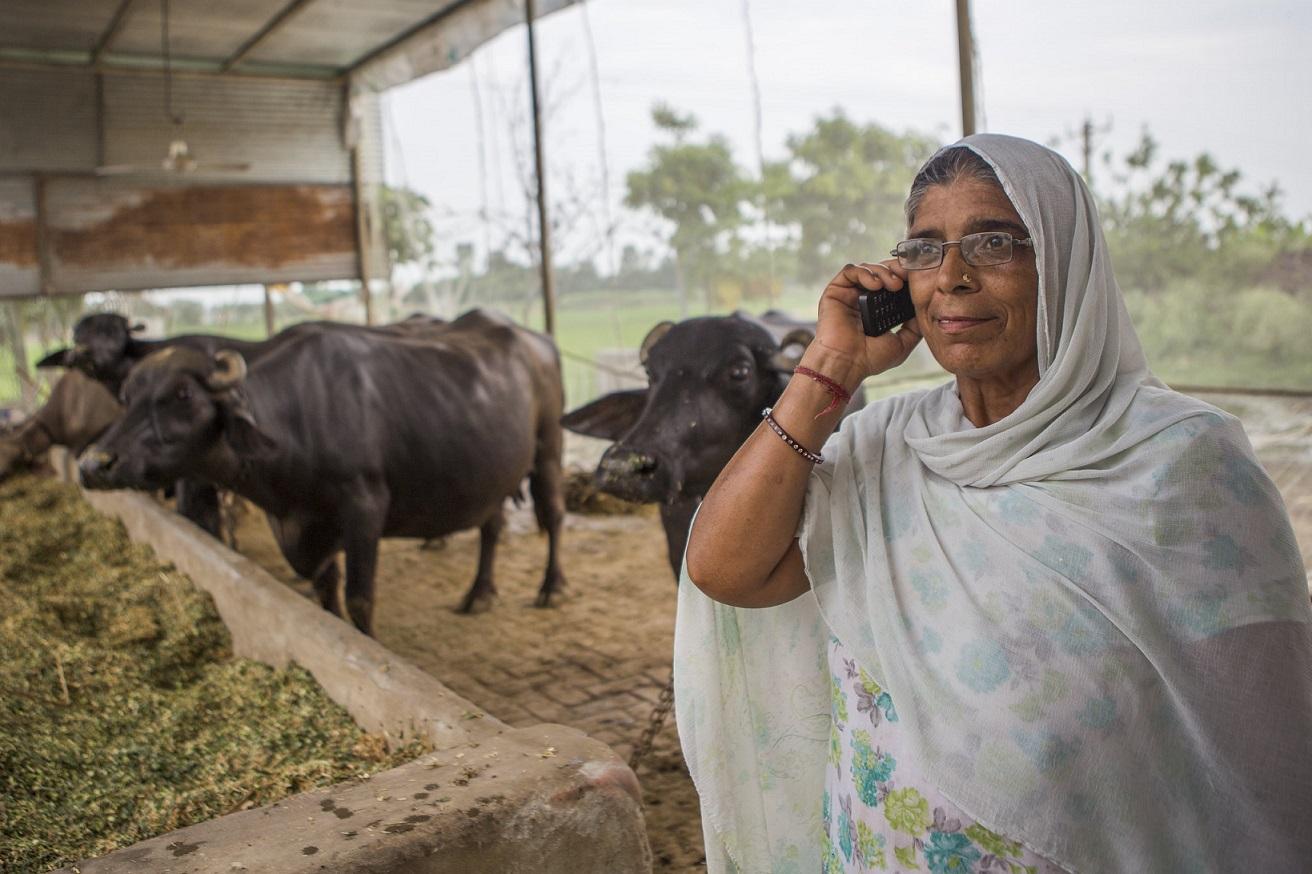Every day, astronomical amounts of data are generated through mobile communications, social media usage, e-commerce, online searches, embedded sensors, satellite imagery, et cetera. This plethora of data is the lifeblood of today’s digital economy and has generally become a crucial information base for all sectors of society. For most people, it is not only difficult to understand what this actually means but also how data can be used for the public good. How we collect, process, make available, and utilize data will play a decisive role for the future of our planet and civilization. Data for good and data competency will be the key factors determining how successful we will be in addressing global challenges, such as climate change, resource scarcity, demographic change, economic development, and even potential future pandemics.
As for data, the list of beneficial use cases is endless. It ranges from simple mobile apps to complex smart cities, from new ways of social participation to more transparent supply chains and the rethinking of entire industries. Several interesting real-world examples of how data is used in inclusive business will be presented in this issue, including Oncopadi, an innovative cancer care platform in Nigeria that provides online medical consultation via video, audio, or chat; Lentera Africa, a Kenyan agri-tech start-up enabling farmers to adapt to climate change through precision agriculture; and Nature’s Nectar Zambia, a company that uses a smart tracking system to make honey production more sustainable.
Besides the immense potential that lies in the intelligent use of data, there are also various challenges that complicate and, in some cases, hinder the exploitation of this potential. These challenges include privacy and data security, systems interoperability, data availability, and the self-determination and data sovereignty of individuals and societies. There are also gaping economic disparities which are reflected in data infrastructure. While Africa, for example, is home to 17 percent of the world population, the continent only accounts for one percent of global data center capacity. In order to put data in the service of improving lives worldwide and achieve global sustainability goals, data use must be facilitated on a technical, organizational, and capacity level and needs to be supported by corresponding policy frameworks.
The German Federal Ministry for Economic Cooperation and Development (BMZ), therefore, launched a Global Programme on Digital Development in 2021. Conducted by the Deutsche Gesellschaft für Internationale Zusammenarbeit (GIZ), the programme is a prime example of how the breadth of these issues can be tackled. The programme and its eleven political initiatives implement digital standards along the priorities of the BMZ (Gender, Hunger and Poverty, Health, and Just Transition). Three initiatives are especially focused on data. With FAIR Forward - Artificial Intelligence for All, the German development cooperation improves access to open, non-discriminatory, and inclusive training data and AI technologies for local innovation. The initiative Data4Policy addresses the urgent need for data-driven policymaking by building new collaborations between key actors in regional and digital ecosystems. Finally, the Data Economy initiative is expanding the ground for data markets in African partner countries and thus improving the conditions for a value-generating data economy for the benefit of all. Overseeing the implementation of these initiatives, I have learnt that for fostering sustainable development, certain aspects cannot be afterthoughts – these include, above all, scalability and inclusiveness. Projects that remain small and inefficient or leave people behind will benefit nobody in the long run.
In this spirit, the BMZ has also established Digital Transformation Centers (DTCs) in 16 partner countries, including Mexico, Benin, Kenya, Indonesia, and Vietnam. The overall goal is to help identify high-potential innovations and transform them into competitive products with viable business models. The DTCs provide entrepreneurs and start-ups with access to training, mentoring, accelerator programs and networks of potential business partners, operating with a modular building block structure that can be flexibly adapted to local needs and conditions. In this process, a special focus is placed on facilitating the access to digital technologies for marginalized groups. Unlike private-sector offerings, all activities of the DTCs are geared towards empowering women, girls, and other population groups affected by the digital divide.
The Global Programme on Digital Development reflects the importance of and growing political will to achieve a sustainable global digital transformation. It is apparent that this goal will only be achieved with a healthy dose of entrepreneurial innovativeness, facilitated and guided by inclusive business policies, improved data access within and across national borders, and a fostering of local digital ecosystems. To realize a rapid progress that matches our challenges ahead, we need to utilize the huge potential that lies in leapfrogging, i.e., the skipping of technological development stages. For instance, many of our partner countries have been successful in fostering renewable energies, smartphone use, and mobile payments without wasting too much time focusing on outdated technologies, such as fossil fuels, landline, and credit cards. If done right, data-driven innovation can serve as a much-needed source of hope in these often dark and challenging times. Encouraging examples highlighted in this issue of CLUED iN show that entrepreneurs are finding new ways to solve pressing challenges using data. I’m delighted to see so many bright minds from all corners of the world joining forces in this crucial endeavor.
Image: CCAFS/2014/Prashanth Vishwanathan (CC BY-NC-SA 2.0)

